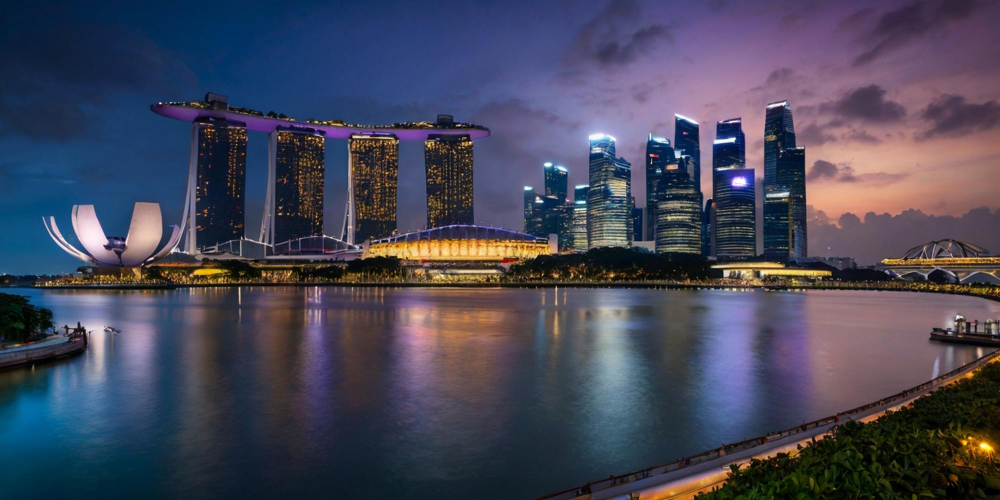
Singapore has earned a global reputation as one of the most advanced medical tourism destinations in Asia. With a world-class healthcare infrastructure, strict regulatory oversight, and a focus on patient safety, Singapore attracts patients from neighboring Southeast Asian countries, the Middle East, Europe, and North America. Known for its clinical precision, English-speaking medical workforce, and cutting-edge medical technology, Singapore is often the preferred choice for patients seeking premium healthcare in a highly organized and hygienic setting.
Its healthcare institutions—especially those in the capital city—are internationally accredited and supported by research-driven universities and partnerships with leading global medical centers. Medical tourists are drawn to Singapore not only for specialized treatments but also for the assurance of safety, quality, and professional ethics. The country’s modern urban environment, political stability, and efficient public services further enhance its appeal as a medical travel destination.
Singapore excels in a wide range of high-acuity medical fields, including oncology, cardiology, neurosurgery, and organ transplantation. The country is also known for complex diagnostics, robotic-assisted surgeries, and advanced cancer therapies such as proton beam therapy. Singapore’s private hospitals and specialist centers often handle rare and difficult cases, thanks to a high level of medical expertise and access to the latest technologies.
Additionally, Singapore is popular for wellness and preventive health screenings, executive check-ups, fertility treatments (including IVF), ophthalmology, and aesthetic procedures. While costs may be higher than in neighboring destinations like Thailand or Malaysia, patients are paying for unmatched medical standards, advanced infection control protocols, and highly personalized care.
A key differentiator is the caliber of Singaporean doctors—many of whom are trained in the U.S., U.K., or Australia—and the low doctor-to-patient ratio, which allows for more attention and care. Hospitals in Singapore typically provide tailored care plans, second opinions, and concierge services for international patients.
Singapore is extremely accessible, with Changi International Airport being a major aviation hub offering direct connections to cities across Asia, Europe, the Middle East, and the Americas. The airport itself is award-winning and features medical concierge services, lounges, and convenient transport to city hospitals.
Visa policies are patient-friendly, with short-term medical visas available to most nationalities either visa-free or through a simple online process. Upon arrival, international patients are often met by multilingual coordinators who assist with transportation, appointments, and accommodation arrangements.
Singapore’s healthcare environment is highly inclusive. English is an official language, widely spoken by medical professionals and hospital staff. Many institutions offer translation support for Chinese, Malay, Tamil, Arabic, and Russian-speaking patients. Cultural preferences and dietary requirements such as halal or vegetarian meals are accommodated easily. The city’s safe environment, public transport network, and high cleanliness standards further ensure a stress-free recovery.
Singapore’s healthcare system is tightly regulated by the Ministry of Health, ensuring that hospitals, clinics, and practitioners meet strict licensing and operational standards. Many leading hospitals hold international accreditations such as Joint Commission International (JCI), reflecting their commitment to global best practices.
Patient rights, safety, and privacy are central to Singapore’s medical system. Robust malpractice laws, electronic medical records, and strong infection control measures are in place. Medical tourists are protected by transparent billing practices and formal complaint mechanisms.
Post-treatment care is also a strong point in Singapore. Hospitals typically provide coordinated discharge planning, access to follow-up consultations via telehealth, and ongoing communication with referring physicians abroad. Rehabilitation centers, wellness clinics, and in-patient recovery suites are often part of the extended service offerings.
Singapore is a benchmark in global medical tourism—a destination that offers not just treatment, but trust, integrity, and precision care. From life-saving surgeries to preventive screenings, every step of the patient journey in Singapore is defined by professionalism and comfort. For those who prioritize safety, quality, and efficiency, Singapore remains a top-tier medical tourism destination where advanced science meets compassionate care.
1. Why choose Singapore for medical treatment?
Singapore offers world-class healthcare, safety, and English-speaking doctors.
2. Is the medical care high quality?
Yes, hospitals are internationally accredited and follow strict safety standards.
3. What treatments are popular in Singapore?
Cancer care, heart surgery, fertility treatments, check-ups, and cosmetic surgery.
4. Are doctors well trained?
Yes, many doctors are trained in the U.S., U.K., or Australia.
5. Is English spoken in hospitals?
Yes, English is the main language used by medical staff.
6. How easy is travel to Singapore?
Very easy—Changi Airport has global connections and is well organized.
7. Do I need a visa?
Many nationalities can enter visa-free or get an e-visa easily.
8. Are there special services for international patients?
Yes, hospitals offer concierge support, translation, and airport pickup.
9. Are cultural and dietary needs respected?
Yes, hospitals offer halal food, gender preferences, and prayer spaces.
10. Is Singapore safe for medical travel?
Yes, Singapore is one of the safest and cleanest cities in the world.
11. What about follow-up care?
Hospitals provide telemedicine, rehab, and detailed recovery plans.
12. Is treatment affordable?
Costs are higher than in some countries, but quality and safety are top-notch.
13. What currency is used in Singapore?
The Singapore Dollar (SGD).
14. What time zone is Singapore in?
Singapore Standard Time (SGT), UTC +8.
15. What languages are spoken?
English, Mandarin, Malay, and Tamil.